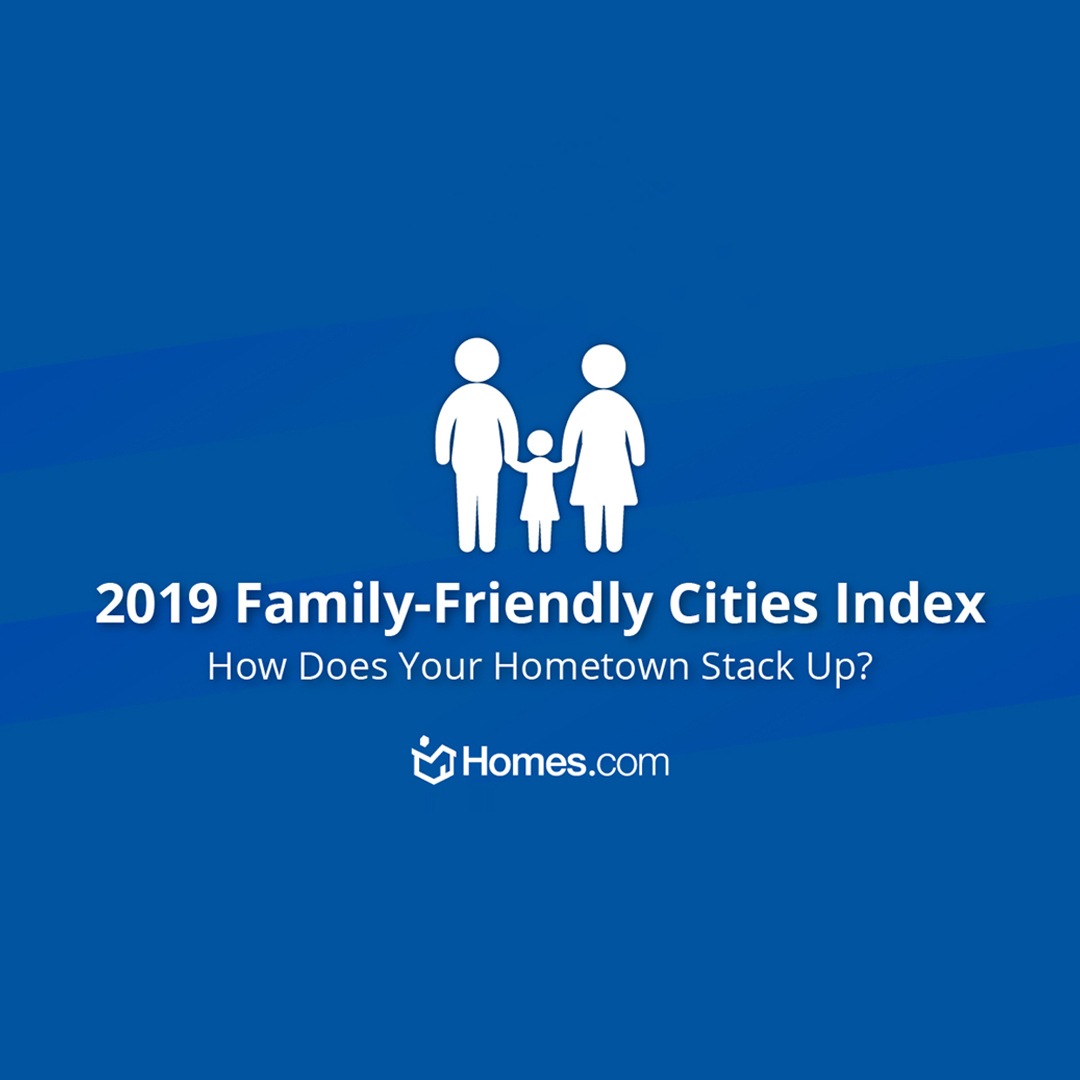The Most Family-Friendly Cities of 2019
Raising a family is a significant part of most people’s lives. It means having children of your own and taking on a new role: parent. Many come to find that where they chose to live as a young adult doesn’t necessarily provide the amenities that are ideal for children, and they will consequently seek out a more fitting city or neighborhood to call home.There are a variety of factors that make an area good for families, including the cost of living, the safety of the area, school quality, and other local amenities. Some cities in the U.S. are above average in certain regards but fall short in others so it can be difficult to know, overall, which ones are ideal for raising kids.With this in mind, we put together a Family-Friendly Cities Index to help parents learn more about which places are great for raising children. To do so, we compared the 50 largest U.S. cities based on six key indicators related to family life. Read on for our findings, comparisons to our 2017 report, and a full description of our methodology.
Main Findings
In 2017, our report ranked the 25 largest metropolitan areas of the United States, but this year we expanded it to include 50. This allowed us to provide a more in-depth analysis for parents who want to compare potential places to live.This year, our ranking saw some shakeups in the top spots, which was mainly caused by the additional cities added into our analysis. In general, these slightly smaller metro areas dethroned some of the larger ones; the only two from last year’s analysis that increased in position were Tampa, FL and Orlando, FL.The top 10 in our current study is dominated by cities in the South. In fact, nine out of 10 of them can be found in this region, and a similar trend is seen in our 2017 results. These top-ranking areas generally received high marks across the six indicators we analyzed, and specifically, all of them have above average schools and low costs of living.Virginia Beach, VA, the winning city in our analysis, earned an overall score of 44.98 out of 50.00, with Raleigh, NC and Charlotte, NC following close behind at 44.25 and 42.93, respectively.The lowest ranking cities were held back by low safety scores and high costs of living. For these reasons, New York, NY, San Francisco, CA, and Memphis, TN scored 24.95, 26.13, and 26.83, respectively. This isn’t to say that low-scoring cities aren’t great places to live in general, it’s simply that they are less ideal for families specifically.

Methodology
In order to determine the most and least family-friendly cities, we compared the 50 largest U.S. metropolitan areas across six key dimensions: 1) School Quality, 2) Park Availability, 3) Cost of Living, 4) Safety, 5) Childcare Availability, and 6) Commute Length.Each of the six indicators is graded on a 5-point scale, with a score of 5 representing the most favorable conditions. We determined each city’s total score from the total of each one’s individual factor scores, which were weighted according to their significance for families. Each is listed below with its respective weight and data source.School Quality — Weight: 1.95
- Source: Homes.com internal school score data
Park Availability — Weight: 1.20
- Source: Trust for the Public Land Park Facts Report, and individual cities’ published park information
Cost of Living — Weight: 1.85
- Source: City-Data cost of living index
Safety — Weight: 1.80
- Source: City-Data crime index
Childcare Availability — Weight: 1.70
- Source: Care.com
Commute Length — Weight: 1.50
- Source: U.S. Census
